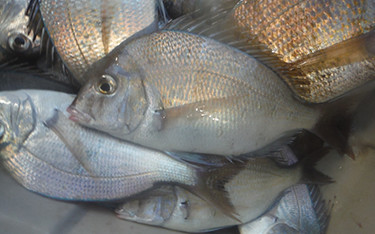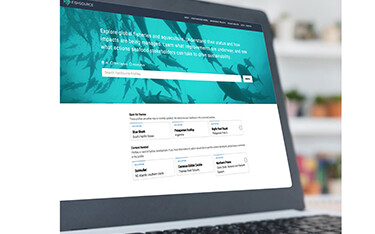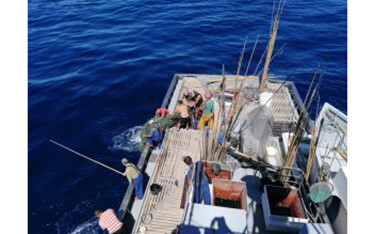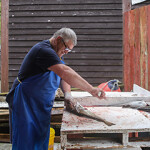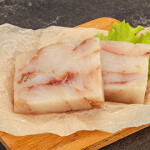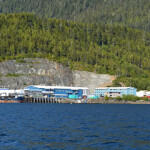The U.S. Atlantic scup bottom-trawl fishery has achieved Marine Stewardship Council (MSC) certification, verifying sustainable fishing practices are being used in the fishery. The certificate will be jointly held by commercial fishing operations of Cape May, New Jersey, U.S.A.-based Lund’s Fisheries and North Kingstown, Rhode Island, U.S.A.-based Seafreeze.
Scup (Stenotomus chrysops) is a brown and silver food fish found in the Northwest
… Read MoreThe Global Seafood Alliance (GSA) has released a new Best Aquaculture Practices (BAP) standard for recirculating aquaculture systems (RAS) for public review. The 60-day public comment period will commence 5 May, 2022 and end 4 July, 2022.
BAP is a third-party certificaiton program developed by GSA to ensure and advance environmentally and socially responsible seafood. The BAP RAS vanguard standard was introduced to encourage
… Read MoreThe International Seafood Sustainability Foundation (ISSF) has released its 2021 annual report, which this year it titled “Transparent Accountability Across Tuna Fisheries.”
SSF is committed to achieving sustainable tuna fisheries through work with industry partners and advocacy appeals directed at regional fishery management organizations (RFMOs).
“The theme we’ve chosen for this year’s report – fostering
… Read MoreThe World Wildlife Fund (WWF) has released a new app, in collaboration with Republic Systems, focusing on traceability in commodity supply chains.
The new app, called transparenC, is a free, cloud-based smartphone app and desktop web portal. According to WWF, it is the first free open-source traceability software for commodity supply chains.
WWF said it developed the app to address increasing consumer demand to know where food is coming from
… Read MoreThe Sustainable Fisheries Partnership (SFP) announced a new collaboration with the United Nations Food and Agriculture Organization (FAO) at Seafood Expo Global in Barcelona Spain, on 26 April, 2022.
The FAO is collaborating with SFP to adopt the standards used in FishSource to establish unique, standardized IDs for the world’s major fisheries. These universal IDs will streamline seafood supply chains, increase transparency, and improve
… Read MoreSan Francisco, California, U.S.A.-based Future of Fish has created a list of recommendations for the seafood industry, with the goal of helping it turn the challenges of the COVID-19 pandemic into organization changes ensuring an environmentally sustainable, socially responsible, and economically viable wild-capture seafood industry.
Future of Fish is a non-profit organization that describes itself a "fishery transformation
… Read MoreOn 20 April, 2021, the Global Aquaculture Alliance (GAA) announced it was transitioning into the Global Seafood Alliance (GSA).
A year into the change, the organization selected Brian Perkins – who has more than four decades of experience in the seafood industry – as its new CEO to lead the transition. Perkins replaced former CEO Wally Stevens on 1 January. Perkins served as the organization’s chief operating
… Read MoreRichmond, British Columbia, Canada-based Ocean Brands has achieved 100 percent Marine Stewardship Council certification for its Ocean’s skipjack tuna.
The achievement has given Ocean Brands the widest range of MSC-certified products in Canada’s canned seafood category, it said in a press release.
“There is still so much work to do when it comes to managing our fisheries. As we take from our natural environment, we also have an
… Read MoreThe Aquaculture Stewardship Council (ASC) has released two new updates in its shrimp standard with the goal of broadening the reach of the program.
ASC is an independent, not-for-profit organization that was co-founded in 2010 by the World Wildlife Fund (WWF) and the Sustainable Trade Initiative (IDH) to manage certification of responsible fish farming across the globe. The ASC’s shrimp standard is a certification process to ensure
… Read MoreA pole-and-line fishery in Portugal's Azores Archipelago has become the world’s first “plastic neutral” fishery.
The "plastic-neutral" designation was developed by the International Pole and Line Foundation (IPNLF), in association with the Azores Ocean Observatory, POPA, Associação de Produtores de Atum e Similares dos Açores, Federação das Pescas dos Açores, and the Institute of
… Read More

